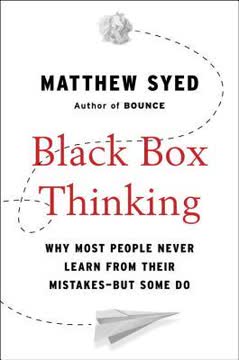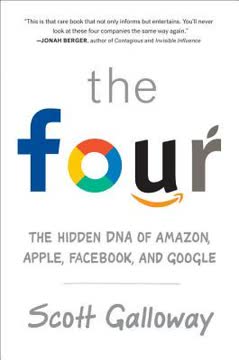Key Takeaways
1. Inequality in America is a result of policy choices, not economic inevitability
We need not just a new war on poverty but a war to protect the middle class.
Policy shapes inequality. The extreme inequality in the United States is not an inevitable outcome of capitalism, but rather the result of specific policy choices. Over the past few decades, decisions favoring the wealthy and corporate interests have led to a widening gap between the rich and the rest of society.
- Key factors contributing to inequality:
- Deregulation of financial markets
- Tax policies favoring the wealthy
- Weakening of labor unions
- Underinvestment in public goods and services
Contrary to popular belief, reducing inequality can actually boost economic growth and stability. Countries like Sweden, Finland, and Norway have achieved both high levels of equality and strong economic performance, demonstrating that there is no inherent trade-off between equality and growth.
2. The financial sector's growth has exacerbated inequality and economic instability
Financialization—which helps explain Britain's dubious status as the second-most-unequal country, after the United States, among the world's most advanced economies—also helps explain the soaring inequality.
Financial sector dominance. The growing influence of the financial sector has played a significant role in increasing inequality and economic instability. This "financialization" of the economy has led to:
- Excessive risk-taking and speculation
- Prioritization of short-term profits over long-term stability
- Diversion of talent from productive sectors to finance
The financial crisis of 2008 exemplified these issues, with the costs of bank bailouts socialized while profits remained privatized. This asymmetry in risk and reward has further concentrated wealth at the top.
The growth of the financial sector has also contributed to the hollowing out of the middle class, as financial engineering and rent-seeking activities have replaced productive investments in the real economy.
3. Globalization has been mismanaged, benefiting the wealthy at the expense of workers
Our trade agreements provide even more opportunities for patent abuse.
Unbalanced globalization. While globalization has the potential to benefit all, its implementation has often favored corporate interests over those of workers and ordinary citizens. Trade agreements have frequently prioritized the protection of intellectual property rights and corporate profits over labor standards and environmental protections.
Key issues with current globalization policies:
- Downward pressure on wages in developed countries
- Reduced bargaining power for workers
- Ease of offshoring jobs without adequate protections
- Tax avoidance through global corporate structures
A more balanced approach to globalization could include:
- Stronger labor and environmental standards in trade agreements
- Measures to ensure fair taxation of multinational corporations
- Investments in education and training to help workers adapt to global competition
4. Tax policy favors the rich and contributes to growing inequality
Our tax system relies heavily on voluntary compliance. But if citizens believe that the tax system is unfair, this voluntary compliance will not be forthcoming.
Regressive tax structure. The current U.S. tax system disproportionately benefits the wealthy, contributing to growing inequality. Key issues include:
- Lower tax rates on capital gains compared to earned income
- Loopholes and deductions that primarily benefit high-income individuals
- Insufficient estate taxes, allowing for the concentration of wealth across generations
- Corporate tax avoidance through offshore accounts and complex financial structures
These policies not only reduce government revenue but also undermine faith in the fairness of the system. A more progressive tax structure could help reduce inequality while providing resources for public investments that benefit all of society.
5. Access to education and healthcare is increasingly unequal, perpetuating disparities
America's inequality distorts our society in every conceivable way.
Opportunity gap widens. Unequal access to quality education and healthcare reinforces and perpetuates economic inequality. This creates a cycle where children from disadvantaged backgrounds have fewer opportunities to succeed and climb the economic ladder.
Education disparities:
- Underfunded public schools in low-income areas
- Rising costs of higher education and student debt
- Limited access to early childhood education for low-income families
Healthcare inequalities:
- Lack of universal healthcare coverage
- High costs of medical care and prescription drugs
- Disparities in health outcomes based on income and race
Addressing these disparities is crucial for creating a more equitable society and ensuring equal opportunities for all citizens.
6. Corporate influence in politics undermines democracy and worsens inequality
America's political system is overrun by money. Economic inequality translates into political inequality, and political inequality yields increasing economic inequality.
Money in politics. The outsized influence of wealthy individuals and corporations in the political process has led to policies that exacerbate inequality. This creates a feedback loop where economic power translates into political power, which in turn is used to further concentrate wealth.
Examples of corporate influence:
- Campaign finance laws favoring big donors
- Lobbying efforts shaping legislation and regulations
- Revolving door between government and industry
The result is a political system that is more responsive to the needs of the wealthy than to those of ordinary citizens. Addressing this issue requires campaign finance reform and measures to reduce the influence of money in politics.
7. Other countries offer alternative models for reducing inequality
The Mauritius Miracle dates to independence. But the country still struggles with some of its colonial legacies: inequality in land and wealth, as well as vulnerability to high-stakes global politics.
Learning from others. While the United States faces significant challenges with inequality, other countries offer examples of successful policies to create more equitable societies. These models demonstrate that reducing inequality is possible and can be compatible with economic growth.
Examples of alternative approaches:
- Scandinavian countries: Strong social safety nets and progressive taxation
- Singapore: Investments in public housing and education
- Mauritius: Universal healthcare and free education through university
By studying these examples, the United States can learn from and adapt successful policies to its own context, potentially creating a more equitable and prosperous society for all citizens.
8. Addressing inequality requires comprehensive policy changes and political will
Inequality is not just about the top marginal tax rate but also about our children's access to food and the right to justice for all.
Multifaceted approach needed. Reducing inequality requires a comprehensive set of policy changes across various domains. This includes reforms in taxation, education, healthcare, labor markets, and political systems.
Key policy areas to address:
- Progressive taxation and closing of tax loopholes
- Investments in public education and job training
- Universal healthcare coverage
- Strengthening labor protections and unions
- Campaign finance reform and anti-corruption measures
- Antitrust enforcement to reduce corporate concentration
Implementing these changes will require significant political will and public support. It's essential to build a broad coalition that recognizes the negative impacts of extreme inequality on society as a whole and is committed to creating a more equitable future.
Last updated:
Review Summary
The Great Divide by Joseph Stiglitz is a collection of essays on economic inequality in the United States. Readers found the book insightful but repetitive, as many articles cover similar themes. Stiglitz criticizes trickle-down economics, deregulation, and policies favoring the wealthy. He argues that inequality hinders economic growth and undermines democracy. While some appreciated Stiglitz's accessible writing and policy suggestions, others felt the book lacked depth and was too focused on the U.S. Overall, it serves as an introduction to Stiglitz's views on inequality.
Similar Books










Download PDF
Download EPUB
.epub digital book format is ideal for reading ebooks on phones, tablets, and e-readers.












